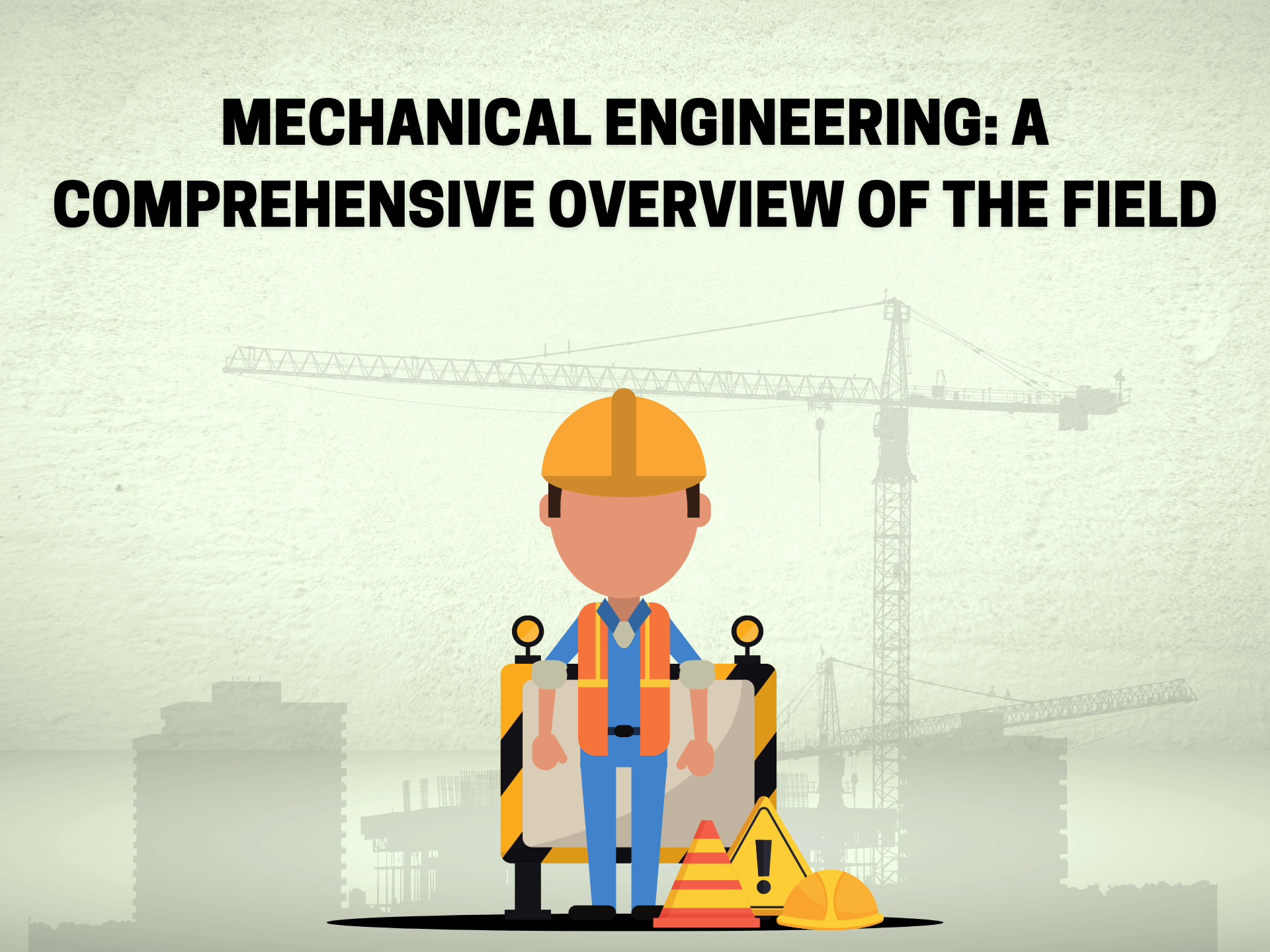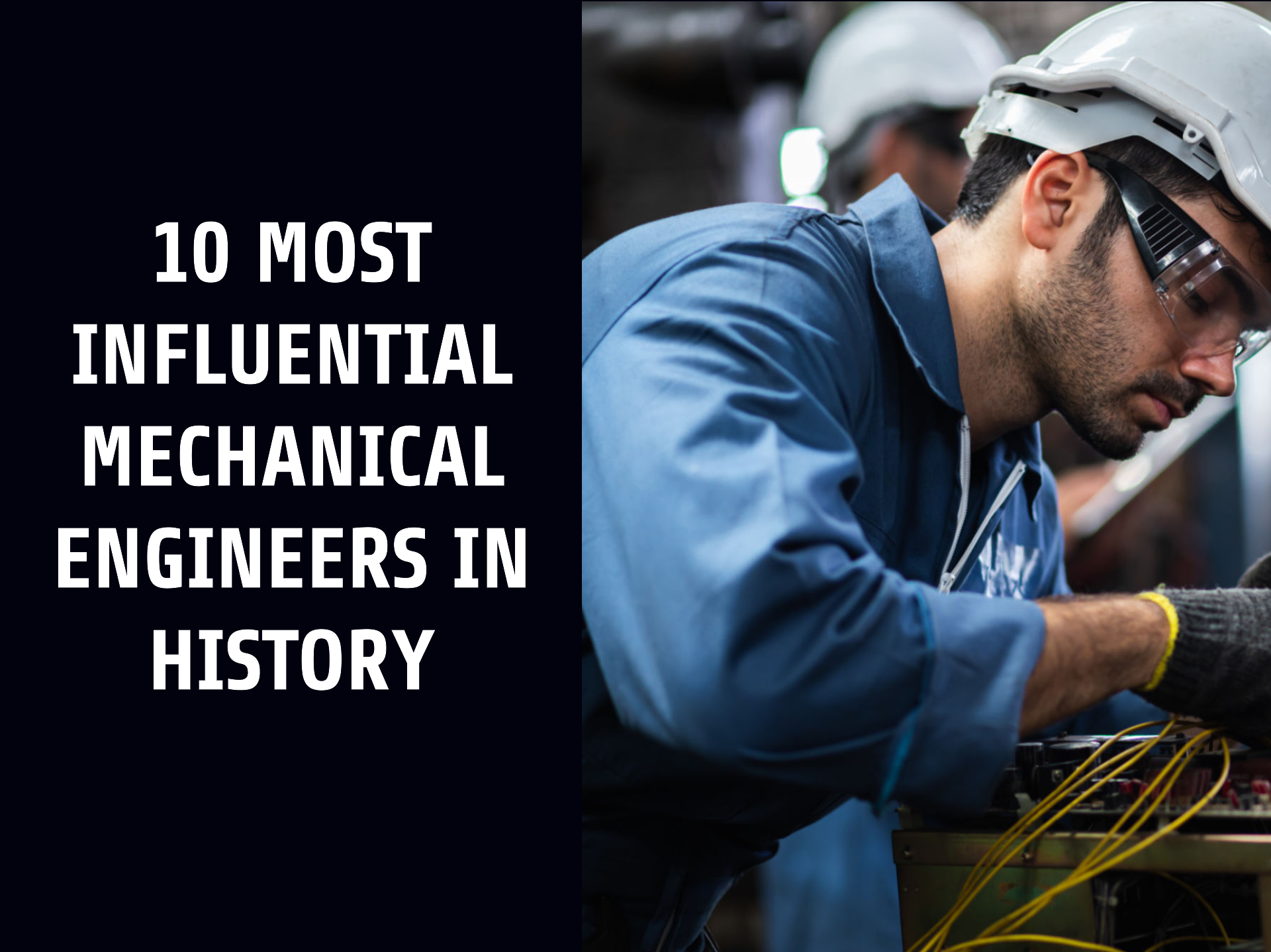Mechanical engineering is a vast field that encompasses a wide range of subfields, from robotics and control systems to energy systems engineering. It is based on mechanics, thermodynamics, materials science, and energy conversion principles. This article will provide you with a comprehensive overview of mechanical engineering, including its history, core principles, subfields, job prospects, and more.
Introduction
Mechanical engineering has a rich history that spans centuries. It is one of the oldest and broadest branches of engineering. Its roots are based on the principles of mechanics, which were first formulated by Archimedes in the 3rd century BC. Over the centuries, mechanical engineering has evolved to encompass a wide range of subfields, from thermodynamics to robotics. Today, mechanical engineers work on everything from microelectromechanical systems (MEMS) to spacecraft and from medical devices to renewable energy systems.
History of Mechanical Engineering
The history of mechanical engineering can be traced back to ancient civilizations such as Greece, Rome, and China. For example, the Greeks developed the first steam engine, the aeolipile, in the 1st century AD. The Romans also made significant contributions to mechanical engineering, such as the development of aqueducts, water wheels, and steam-powered mills. In the Middle Ages, European engineers made advances in the design of windmills, clocks, and pumps. The Industrial Revolution of the 18th and 19th centuries marked a turning point in mechanical engineering, as it led to the development of the steam engine, the cotton gin, and other transformative inventions.
Core Principles of Mechanical Engineering
Mechanical engineering is based on several core principles, including mechanics, thermodynamics, materials science, and energy conversion. Mechanics is the study of motion and the forces that cause motion, while thermodynamics is the study of heat transfer and energy conversion. Materials science focuses on the properties and behavior of materials, while energy conversion deals with the conversion of one form of energy into another. These core principles form the foundation for many of the subfields within mechanical engineering.
Subfields of Mechanical Engineering
Mechanical engineering is a broad field that includes many subfields. Here are some of the most popular subfields:
Robotics and Control Systems
Robotics and control systems involve the design and development of robots and automated systems. Mechanical engineers working in this subfield design the mechanical components of robots and create algorithms and software to control their movements. Some of the most popular courses in this field are:
Robotics: Aerial Robotics by University of Pennsylvania (Coursera)
Robotics: Perception by University of Pennsylvania (Coursera)
Robotics: Mobility by University of Pennsylvania (Coursera)
Biomechanics is the study of how mechanical principles apply to living organisms. Mechanical engineers working in this subfield may design medical devices or prosthetics, or they may study the mechanics of the human body to better understand how injuries occur and how they can be prevented. Some of the most popular courses in this field are:
Biomechanics by Georgia Institute of Technology (Coursera)
Fundamentals of Biomechanics by University of Michigan (edX)
Biomechanics: Introduction to Mechanics of Musculoskeletal System by Karolinska Institutet (Coursera)
Biomechanics
Automotive Engineering
Automotive engineering focuses on the design and development of cars and other vehicles. Mechanical engineers working in this subfield may design engines, transmissions, or other automotive components, or they may work on improving the efficiency and safety of vehicles. Some of the most popular courses in this field are:
Introduction to Automotive Engineering by Delft University of Technology (edX)
Fundamentals of Automotive and Engine Technology by University of Naples Federico II (Coursera)
Vehicle Dynamics by University of Michigan (Coursera)
Aerospace Engineering
Aerospace engineering involves the design and development of aircraft, spacecraft, and missiles. Mechanical engineers working in this subfield may design propulsion systems, control systems, or structural components of aerospace vehicles. Some of the most popular courses in this field are:
Introduction to Aerospace Engineering: Astronautics and Human Spaceflight by University of Colorado Boulder (Coursera)
Fundamentals of Aerospace Engineering by Delft University of Technology (edX)
Aerospace Engineering: Aircraft Fundamentals and Advanced by University of Glasgow (Coursera)
Energy Systems Engineering
Energy systems engineering focuses on the design and development of energy systems, such as power plants, wind turbines, and solar panels. Mechanical engineers working in this subfield may design components of these systems or work on improving their efficiency and sustainability. Some of the most popular courses in this field are:
Energy Production, Distribution & Safety by Delft University of Technology (edX)
Solar Energy by Technical University of Denmark (Coursera)
Wind Energy by Technical University of Denmark (Coursera)
Manufacturing Engineering
Manufacturing engineering involves the design and development of manufacturing processes and systems. Mechanical engineers working in this subfield may design production systems or work on improving the quality and efficiency of manufacturing processes. Some of the most popular courses in this field are:
Manufacturing Process Control by Georgia Institute of Technology (Coursera)
Advanced Manufacturing Process Analysis by University at Buffalo (Coursera)
Introduction to Manufacturing Systems by University of Wisconsin-Madison (Coursera)
Nanotechnology
Nanotechnology is a relatively new subfield of mechanical engineering that involves the study of materials and systems at the nanoscale level. Mechanical engineers working in this subfield may design and develop nanomaterials or nanodevices, which have a wide range of potential applications in medicine, electronics, and other fields. Some of the most popular courses in this field are:
Nanotechnology and Nanosensors by University of California, San Diego (edX)
Nanotechnology: The Basics by University of Pennsylvania (Coursera)
Nanotechnology: Fundamentals and Applications by Rice University (Coursera)
Job Prospects in Mechanical Engineering
Mechanical engineering is a highly versatile field with excellent job prospects. According to the United States Bureau of Labor Statistics (BLS), mechanical engineers earned a median annual salary of $88,430 in May 2020. The BLS also projects that employment of mechanical engineers will grow by 4% from 2019 to 2029, which is about as fast as the average for all occupations.
Mechanical engineers can work in a wide range of industries, including aerospace, automotive, energy, healthcare, manufacturing, and more. Some of the job titles available to mechanical engineers include design engineer, manufacturing engineer, project engineer, quality engineer, research and development engineer, and sales engineer.
Education and Training Requirements
To become a mechanical engineer, you typically need to earn a bachelor’s degree in mechanical engineering or a related field. Many mechanical engineers also earn advanced degrees, such as master’s or doctoral degrees, to specialize in a particular subfield. In addition to formal education, mechanical engineers often undergo on-the-job training or participate in internships to gain practical experience.
FAQs
Q: What skills do mechanical engineers need?
Mechanical engineers need strong skills in math, science, and problem-solving. They also need good communication skills, as they often work in teams and need to be able to explain complex technical concepts to non-technical colleagues.
Q: What kind of software do mechanical engineers use?
Mechanical engineers use a variety of software tools, including computer-aided design (CAD) software, finite element analysis (FEA) software, and simulation software. These tools allow them to design, analyze, and test mechanical systems and components. Some popular software used by mechanical engineers include SolidWorks, ANSYS, MATLAB, and CATIA.
Q: What kind of jobs can mechanical engineers get?
Mechanical engineers can work in many different industries, including aerospace, automotive, energy, healthcare, and manufacturing. Some of the job titles available to mechanical engineers include design engineer, manufacturing engineer, project engineer, quality engineer, research and development engineer, and sales engineer.
Q: What is the job outlook for mechanical engineers?
The United States Bureau of Labor Statistics (BLS) projects that employment of mechanical engineers will grow by 4% from 2019 to 2029, which is about as fast as the average for all occupations. Mechanical engineering is a versatile field with good job prospects.
Q: How much do mechanical engineers make?
According to the BLS, mechanical engineers earned a median annual salary of $88,430 in May 2020. Salaries can vary depending on factors such as education, experience, and industry.
Q: What are some of the subfields of mechanical engineering?
Mechanical engineering includes many subfields, such as robotics and control systems, biomechanics, automotive engineering, aerospace engineering, energy systems engineering, manufacturing engineering, and nanotechnology.
Q: What is the importance of internships for mechanical engineers?
Internships are important for mechanical engineers because they provide hands-on experience and exposure to real-world problems and projects. Interns can work alongside experienced engineers and gain valuable skills and knowledge that can help them in their future careers.
Conclusion
Mechanical engineering is a diverse and dynamic field that offers excellent job prospects and opportunities for specialization. Whether you’re interested in designing medical devices, developing renewable energy systems, or building spacecraft, mechanical engineering has something to offer. By earning a degree in mechanical engineering and gaining practical experience, you can position yourself for a rewarding and challenging career in this exciting field.















